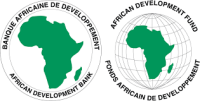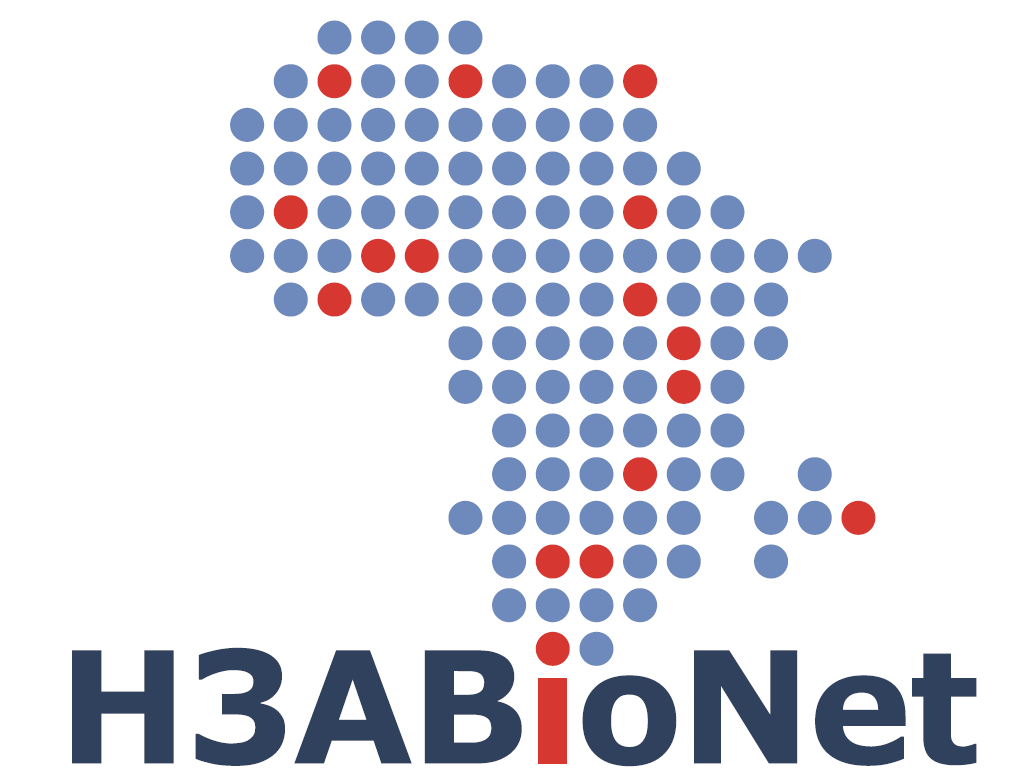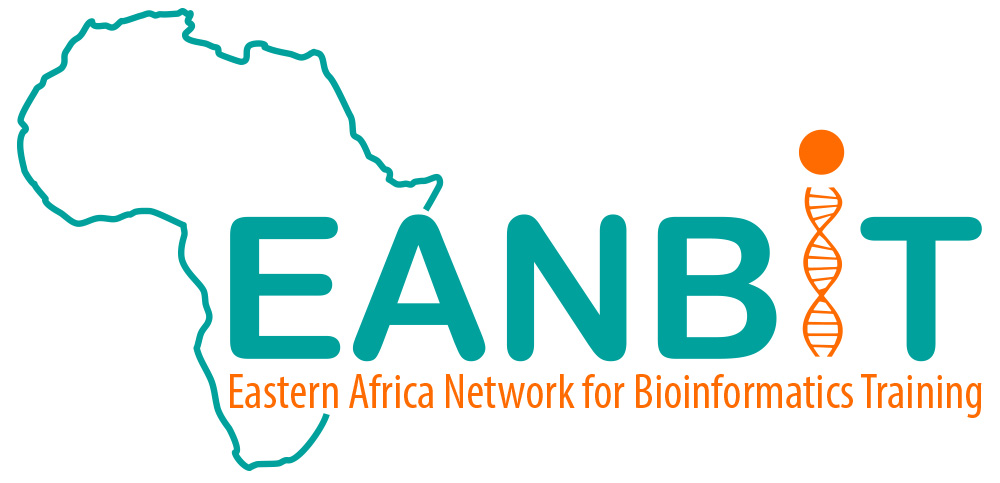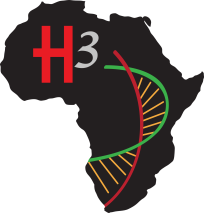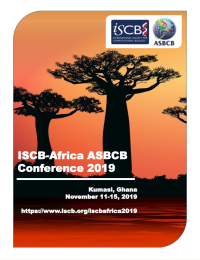| # |
Author(s) |
Title |
| 1 |
Robert Adamu Shey, Stephen Mbigha Ghogomu, Kevin Kum Esoh, Neba Derrick Nebangwa, Cabirou Mounchili Shintouo, Nkemngo Francis Nongley, Bertha Fru Asa, Ferdinand Njume Ngale, Luc Vanhamme and Jacob Souopgui |
In-silico design of a multi-epitope vaccine candidate against onchocerciasis and related filarial diseases |
| 2 |
Micheal Arowolo, Marion Adebiyi and Ayodele Adebiyi |
A Feature Selection Based Model for the Classification of RNA-Seq Anopheles Gambiae Data |
| 3 |
Diawara Abdoulaye, Segun Fatumo, Wele Mamadou and Dabitao Djeneba |
A Genome-wide association study reveals a novel genetic marker for Type-II diabetes in rural Uganda |
| 4 |
Lautaro Soler |
Image processing on the brain: 3D printing MRI images for further observation |
| 5 |
Modibo Kouyate, Modibo Sangare and Sibiry Ssamake |
Bioinformatics approach to support genetic research in Autism in Mali |
| 6 |
Mahdi, Niven Mursi and Abdelrahim |
A non-resistant mutation of K13-propeller gene in Sudanese Plasmodium falciparum isolated from Damazin, Southeast Sudan |
| 7 |
Sumaya Kambal, Amna Alnazir and Bashir Salim |
Mitogenomic Analysis of Western Baggara Cattle Breed-Nyalawi Population Revealed High Level of Haplotype Diversity and Population Expansion |
| 8 |
Samar S. M. Elsheikh, Emile R. Chimusa, Nicola J. Mulder and Alessandro Crimi |
Relating Global and Local Connectome Changes to Dementia and Targeted Gene Expressions in Alzheimer's Disease |
| 9 |
Amna Mubarak, Mushal Allam, Ahmed Babiker and Mubarak Abdelrahman |
Molecular approaches for identification of Bulinus species from White and Blue Nile, Sudan |
| 10 |
Grace Olasehinde, Prudence Sidi, Jarat Adekoya, Grace Ogunrinola, Oluwabunmi Atolagbe, John Oyewale and Adedayo Omonigbehin |
Metagenomic Study of Saliva from Symptomatic and Asymptomatic Subjects in Covenant University, Ota |
| 11 |
Opeyemi Soremekun and Mahmoud Soliman |
From Genomic Variation to Protein Aberration: Mutational analysis of Single nucleotide polymorphism present in ULBP6 gene and Implication in Immune Response |
| 12 |
Olaposi Omotuyi and Oyekanmi Nash |
Dihydroartemisinin/human P110-PI3K-beta Complex: Computational dynamics and Kinetics |
| 13 |
Chadia Ed-Driouch and Ahmed Moussa |
The Use of Gene Ontology Before Gene Selection for Enhancing the Targets Selection Process in Transcriptomics Data |
| 14 |
George Yankson, Mary Anti Chama and Lily Paemka |
TARGETS AND MECHANISMS OF ACTION OF DICHAPETALIN M, A COMPOUND WITH POTENTIAL FOR TREATMENT OF RESISTANT BREAST CANCER |
| 15 |
Salem El-Aarag, Amal Mahmoud, Medhat H. Hashem, Hatem Abd Elkader, Alaa E. Hemeida and Mahmoud Elhefnawi |
In silico identification of potential key regulatory factors in smoking-induced lung cancer |
| 16 |
Douglas Ruhwaya, Ryman Shoko, Gadzikano Munyuki and Grace Chitima Mugumbate |
Comparative Modeling of Plasmodium falciparum Heat Shock Protein 70-1 (PfHSP70-1) as potential drug targets for antimalarial drugs. |
| 17 |
Olufemi Durojaiye |
Nutritional Evaluation of Ensiled Cassava root and leaf blends fed to gestating sows. |
| 18 |
Yamkela Mgwatyu and Uljana Hesse |
Invesigations into genetic diversity of distinct rooibos growth forms |
| 19 |
Sofia Ali |
Different phenotypic and molecular mechanisms associated with multidrug resistance in Klebsiella Pneumoniae strain NUBRI-K isolated from Sudan |
| 20 |
Oche George and Adedoyin Igunnu |
Epitope-based Vaccine Design against Human Immunodeficiency Virus (HIV) Glycoprotein: A Computational Approach |
| 21 |
Olaitan Awe, Angela Makolo and Segun Fatumo |
Computational Genomic Analysis of Bacteriophages in Typhoidal Salmonella Sequences |
| 22 |
Mamadou Sangare, Cheickna Cisse, Mamadou Wele and Alia Benkhala |
IDENTIFICATION OF A THERAPEUTIC TARGET OF Plasmodium falciparum AND CONSTRUCTION OF ITS MODEL BY HOMOLOGY |
| 23 |
Sunday Vodah and Alan Christoffels |
Block k-mer intersection graphs |
| 24 |
Nusrah Afolabi-Balogun, Azeezah Oni, Kolawole Ajenifuja and Adewale Adebisi |
Biomarker-based Screening of Cervical Cancer for Potential Drug Targeting. |
| 25 |
Peter Ogunyinka, Paul Ogunyinka and Dawodu Agunbiade |
On the Statistical Assessment of the Medical Software Usage on Free and Open Source Software Platform |
| 26 |
Olusegun Fagbohun, Baron Okpe and Oladipo Omotosho |
CHARACTERISATION OF THE MAJOR HISTOCOMPATIBILITY COMPLEX CLASS I AND II GENES POLYMORPHISM IN NIGERIAN INDIGENOUS CHICKENS |
| 27 |
Elvis Muchene |
Real Time Prediction Of Infectious Disease Outbreaks Based On Google Trend Data In Africa. |
| 28 |
Roseline Ogundokun, Marion Adebiyi and Emmanuel Adeniyi |
Computational Prediction of AGAP007784PA Protein’s 3D Structure Reveals its Capacity of Catalytic activity in the Malaria Vector, Anopheles |
| 29 |
Abidemi Adeniyi, Marion Adebiyi and Roseline Ogundokun |
In-Silico Model of Anopheles Protein 3REW reaveled protein participation in the anopheles immunity against bacterial infection. |
| 30 |
Okwudiri Udogu |
Comparative Evaluation of the Effects of Some Chemical Mutagens on Some Selected Cassava (Manihot esculenta Crantz L) Varieties. |
| 31 |
Francis Jaryan, Abimbola Owoseni and Olufeyikemi Adeleke |
Presence of BlaTEM and CTX-M genes in Enterobacteriaceae Isolates from Food Contact Surfaces at Selected Cafeterias within Bowen University, Iwo, Nigeria. |
| 32 |
E. K. Oladipo, E.H Awoyelu, T.O.C Faleye, C.O. Adetunji, O. S. Onile, O.O. Adelowo and J.K. Oloke |
Bioinformatics Training: A Case Study at Precious Cornerstone University, Ibadan, Nigeria |
| 33 |
Idris Muhammad |
Application of Bioinformatics in crop improvements and insects resistance (oral) and Improving access control of the cloud using one time password and message digest 5 Algorithms |
| 34 |
Eniola Olajide |
Application of genomics and bioinformatics in malaria |
| 35 |
Emmanuel Asani, Marion Adebiyi, Roseline Ogundokun and Emmanuel Adeniyi |
Homology Modeling Explicate Anopheles’Hydroxyisobutyryl-CoA Hydrolase Gene Activity in Amino Acid Catabolic Process |
| 36 |
Babatunde Gbadamosi, Marion Adebiyi, Emmanuel Adeniyi and Roseline Ogundokun |
Computational Prediction of the Anopheles DNA Primase Protein 3d Model Revealed Protein Activity in DNA Synthesis Initiation and Metal Binding |
| 37 |
Samuel Egieyeh, Chioma Uduma and Kenechukwu Obikeze |
In silico drug-likeness profiling of phytochemicals isolated from Leonotis Leonurus generates a visualization for “hit to lead” optimization |
| 38 |
Tosin Senbadejo, Tajudeen Ganiyu, Kola Oladipo and Olugbenga Onile |
Designing Multiepitope Subunit Vaccine for Mycobacterium Tuberculosis: Immunoinformatic Approach |
| 39 |
Thoba Lose, Peter van Heusden and Alan Christoffels |
COMBAT-TB-NeoDB: fostering Tuberculosis research through integrative analysis using graph database technologies |
| 40 |
E.K. Oladipo, E.H Awoyelu, O.M. Oyawoye and J.K. Oloke |
Genetic Diversity of Human Respiratory Syncytial Virus Subgroups Circulating in Nigeria and Ghana |
| 41 |
Olivier Sheik Amamuddy and Ozlem Tastan Bishop |
Discovery of conserved motions from highly drug-resistant HIV proteases across PIs via network analysis of high-throughput molecular dynamics simulations |
| 43 |
Titilayo Mabel Olotu, Elijah Kolawole Oladipo and Idowu Jesulayomi Adeosun |
In Silico Comparative analysis of BRCA II Gene in some selected animal species in Africa |
| 44 |
Imane Allali, Regina E. Abotsi, Michelle R. Ngwarai, Lemese Ah Tow, Lehana Thabane, Heather J. Zar, Nicola M. Mulder, Mark P. Nicol and Mamadou Kaba |
Human Microbiota Research in Africa: A Systematic Survey of the Literature |
| 45 |
Mariem Hanachi, Anmol Kiran, Jen Cornick, Dean Everett, Alia Benkahla and Oussema Souiai |
Genomic characteristics of Invasive Streptococcus pneumoniae serotype 1 in New Caledonia, a region in Oceania with a high incidence of serotype 1 outbreaks |
| 46 |
Niyi Adelakun, Ayobami Adeniyi, Olaposi Omotuyi, Temitope David and Olumide Inyang |
Discovery of Novel Inhibitors against Dipeptidyl peptidase-4 from Natural Origin by Structural-Guided Drug Design |
| 47 |
Itunuouwa Isewon, Benedikt Brors and Ezekiel Adebiyi |
Computational Identification of Transcription Factor - Target genes in Plasmodium falciparum |
| 48 |
Ali Kishk and Mohamed El-Hadidi |
AmpliconNet: Sequence Based Multi-Layer Perceptron for Amplicon Read Classification Using Real-time Data Augmentation |
| 49 |
Mohd Shahbaaz and Alan Christoffels |
Computational identification and experimental validation of novel lead compounds against epsilon chain of ATP synthase of Mycobacterium tuberculosis |
| 50 |
Olubukola Smile, Angela Makolo and Raphael Isokpehi |
H3ABioNet Train-the-Trainer Project |
| 51 |
E.H. Awoyelu, E.K. Oladipo and J.K. Oloke |
Comparative Genomic Analysis of Zika Virus: Implications for Vaccine/Drug Development |
| 52 |
Joseph Atemia |
Mining next-generation genome sequencing data for genetic diversity assessment of eastern Africa finger millet blast fungus |
| 53 |
Careen Naitore, Jandouwe Villinger, Caleb Kibet, Daniel Masiga, Alan Christoffels |
The developmentally dynamic microRNA transcriptome of Glossina pallidipes tsetse flies, vectors of animal trypanosomiasis |
| 54 |
Itunuouwa Isewon, Temitope Ogungbesan, Jelili Oyelade and Ezekiel Adebiyi |
Ensemble Clustering Algorithms: An Experimental Evaluation on Gene Expression Data |
| 55 |
Benedicta Aladeitan, Marion Adebiyi and Emmanuel Adeniyi |
Comperative Modeling Reveals Anopheles Protein as Pyrethroids Insecticides Expeller |
| 56 |
Brian Bwanya, Jandouwe Villinger, David Tchouassi and David Mburu |
Comparing the mitochondrial genetics of zoophilic and domestic Aedes aegypti strain in East Africa to the strictly anthropophilic strains on other continents |
| 57 |
Darrell Hurt and Chris Whalen |
The NIAID African Centers of Excellence in Bioinformatics program |
| 58 |
Michael Landi, Sonal Henson and Jean-Baka Entfellner |
Evaluation of germline genes discovery tools through bovine immunoglobulin sequences |
| 59 |
Elvis Karanja |
Pairwise fitting of Copula based imputation algorithm in Archimedean copulas to model drop outs |
| 60 |
Verena Ras, Vicky Nembaware, Jean-Michel Safari Serufuri, Kagisho Montjane, Nicola Mulder and Rolanda Julius |
mGenAfrica: Igniting passion in biology |
| 61 |
Harrison Waweru, Mary Maranga, Jesse Gitaka and Johnson Kinyua |
PREVALENCE OF Plasmodium falciparum ANTI-MALARIAL RESISTANCE ASSOCIATED POLYMORPHISMS Pfcrt, Pfmdr1, Pfdhps, Pfdhrs, Pfap2-mu, Pfubq1 AND Kelch-13 propeller IN SELECTED ISLANDS ON LAKE VICTORIA, WESTERN KENYA. |
| 63 |
Esther Jimah, Felix Onariosakpobare, Oluwaseyi Ashaka, Adesuyi Omoare, Kolawole Oladipo and Olajide Agbede |
Investigation of Hepatitis C Virus among Blood Donors by Molecular Assay in Kwara State, Nigeria. |
| 64 |
Festus Nyasimi, Daniel Masiga and Caleb Kibet |
An expanded Motif Assessment and Ranking Suite for human and insect research |
| 65 |
Margaret Wanjiku, Jean-Baka Domelevo Entfellner and Geoffrey Onaga |
Exploring the phylogenetic evolution and geographic transmission patterns of the rice blast Magnaporthe oryzae in Africa |
| 66 |
Adesola Ajayi, David Nwachukwu and Adeola Onibokun |
TANNASE PRODUCTION BY TANNIC-ACID DEGRADING BACTERIA ISOLATED FROM COWPEA (Vigna unguiculata) |
| 67 |
Wisdom A. Akurugu, Carel van Heerden, Alvera Vorster, Maia Lesosky, Nicola Mulder and Ekkehard Zöllner |
The Role of rs41423247 in Protection Against Hypothalamic-Pituitary-Adrenal Suppression in Asthmatic Children on Corticosteroids |


























